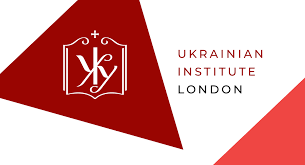Featured Galleries USUBC COLLECTION OF OVER 160 UKRAINE HISTORIC NEWS PHOTOGRAPHS 1918-1997
 Holodomor Posters
Holodomor Posters

10 things everyone should know about Ukraine
 10 unique documentaries about Ukraine, its history, culture, mentality.
10 unique documentaries about Ukraine, its history, culture, mentality.
Ukrainian Institute of London, May 16, 2021
10 Things Everyone Should Know About Ukraine is a series of ten short films produced by the Ukrainian Institute of London that bring to life ten Ukrainian stories including that of the serf who became an artist and a poet; a writer who rewrote European classics from a woman’s point of view, a theatre director who thought that revolutionary art could change the world, a count who chose to become a priest, an author who wrote more than 300 poems in his prison cell, and film directors who gave a voice the silenced.
The project tells stories of prominent Ukrainians, historical and cultural events that reshaped Ukraine’s history of the 19th-21th centuries:
- Ukraine as a battleground of murderous regimes fighting over the territory and its people;
- Ukraine as a melting pot of languages and cultures each influencing one another;
- Ukraine as a place where revolutions happen in order to bring about peace;
- Ukraine of many stories told in many voices.
Leading scholars invite the audience to rethink familiar phenomena in local and global contexts, and to understand their role in the formation of modern Ukraine, their place in European and world cultural context.
The series was prepared by the Ukrainian Institute of London in collaboration with leading scholars in the field of Ukrainian Studies. The archival footage used in the films was provided by the Pshenichny Central State Cinema, Photo and Audio Archives of Ukraine.
The project is a part of the Lysiak-Rudnytsky Ukrainian Studies Programme by the Ukrainian Institute, a public institution affiliated with the Ministry of Foreign Affairs of Ukraine. The Programme is named after Ivan Lysiak-Rudnytsky (1919-1984), an American/Canadian historian of Ukrainian descent.
Taras Shevchenko: the Serf Who Founded a Nation
How Taras Shevchenko (1814-1861) went from being a serf to becoming Ukraine’s most important poet, giving a voice to the Ukrainian people.
(by Dr. Rory Finnin, University of Cambridge)
More on Taras Shevchenko:
- Taras Shevchenko. The case of a personal fight against the Russian Empire
- A XIX-century poet is now Ukraine’s driving force of change
Lesia Ukrainka: Fin-de-siecle Ukrainian Feminism
How Ukrainian modernist writer Lesia Ukrainka (1871-1913) pioneered new feminist literature, at the forefront of European trends of the time.
by Dr. Sasha Dovzhyk, Birkbeck, University of London)
More on Lesia Ukrainka:
The many faces of Ukrainian writer & feminist Lesia Ukrainka
- Lesia Ukrainka’s “laughter through tears” and patriotism despite sorrow: poetic inspiration for a country at war
- Lesia Ukrainka: Teen idol, beacon of erudition & fervent advocate of European integration
The Many Voices of Ukraine
How over the centuries, the territory of Ukraine has been home to a huge diversity of languages and literatures, with unique and dynamic interplay between different cultures.
(by Dr. Uilleam Blacker, University College London)
Les Kurbas: Ukrainian Avant-garde Theatre
How the experimental director, Les Kurbas, radically transformed Ukrainian theatre and was at the cutting edge of theatre innovations across Europe.
by Dr. Mayhill C. Fowler, Stetson University
Holodomor: The Ukrainian Famine of the 1930s
How the Holodomor fits into the wider understanding of Stalin’s USSR, and how the famine was covered in world media.
(by Dr. Daria Mattingly, University of Cambridge)
More on the Holodomor:
- Holodomor: Stalin’s punishment for 5,000 peasant revolts
- The Holodomor of 1932-33. Why Stalin feared Ukrainians
- Holodomor in Kharkiv through the lens of Austrian engineer: photo gallery
The Bloodlands: Ukraine in World War II
How the multiple occupations of Ukraine during the Second World War impacted the country and the devastating outcomes of these occupations, including the Holocaust.
(by Professor Timothy Snyder, Yale University)
Read also:
- Nazi dreams of an enslaved Ukraine: the blind spot of Germany’s historical memory – Timothy Snyder
- Ukrainian history gift to global history – Prof. Snyder
Andrei Sheptytskyi: A Count Who Became a Priest
The extraordinary story of Andrei Sheptystskyi, a count who gave up a life of wealth to become a Ukrainian Catholic priest, who saved Jewish lives in WWII and eventually founded Ukraine’s most modern university.
(by Bishop Borys Gudziak, Ukrainian Catholic Archeparchy of Philadelphia)
More on Andrei Sheptytskyi:
Fighting for the Self: Poetry from the Gulag
How the dissident poet Vasyl Stus fought for human and national rights and created unique poetry of the self, overcoming the extreme conditions of the Soviet Gulag.
(by Dr. Bohdan Tokarsky, University of Basel)
Read also:
- How Ukraine’s Vasyl Stus used poems to fight the Soviet Regime
- A taste of Ukraine’s poetic Renaissance executed by Stalin
Ukrainian Cinema: Giving a Voice to the Silenced
Throughout history, Ukrainian cinema captures the plight of marginalized peoples and identities, those forgotten or hidden from society come to life on screen.
(by Dr. Olga Bryukhovetska, National University of Kyiv Mohyla Academy)
Why do Ukrainians take to the streets?
Why Ukrainians, in spite of their divisions, are always ready to come out on the streets and stand up for their rights.
(by Dr. Ola Onuch, Associate Professor in Politics (Senior Lecturer), University of Manchester)
Watch more:
- The Hunger for Truth: Documentary about Canadian journalist who was first to report about Holodomor
- Timothy Snyder: Ukraine is but one aspect of a much larger strategy that threatens European order
- Historical reconstruction breathes new life into Ukraine’s iconic Kamianets-Podilskyi fortress
LINK:http://euromaidanpress.com/2021/05/16/10-things-everyone-should-know-about-ukraine/











